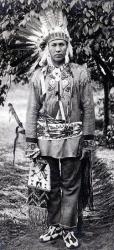1933 - 2020 Person Name: Pablo Sosa Hymnal Number: 10 Composer of "[Gloria, gloria, gloria en las alturas a Dios]" in Many and Great Pablo Sosa (b. 1933 - d. 2020) grew up and was educated in Argentina, the U.S. (Westminster Choir College), and Germany. For years he pastored a large Methodist congregation in Buenos Aires, Argentina while composing songs, leading choirs, editing hymnals, producing religious broadcasts, and teaching liturgy and hymnology at a seminary.
Meanwhile, life in Argentina pushed him to question his assumptions about what’s best for congregational singing. During Argentina’s “dirty war,” two young women from his church were disappeared, possibly for working among the poor. As Catholic and Protestant churches hesitated whether to speak out, remain silent, or support the government, many people lost faith. Economic meltdown after the war plunged many middle-class Argentinians into poverty. Sosa’s growing social awareness widened his vision for “lifting up hope with a song.” He often describes worship as “the fiesta of the faithful,” where all are welcome and all music is seen as “part of the ‘song of the earth,’ which answers the psalmist’s call ‘Sing joyfully to God, all the earth!’ (Psalm 98:4).”
Whether in his home church, Iglesia Evangélica Metodista La Tercera (Third Methodist Church) in Buenos Aires, or at churches or conferences around the world, he urges people, “Put your body into worship!” And he reminds them of the biblical connection between justice and worship.
CICW Website Bio (http://www.calvin.edu/worship)
Pablo D. Sosa


 My Starred Hymns
My Starred Hymns



